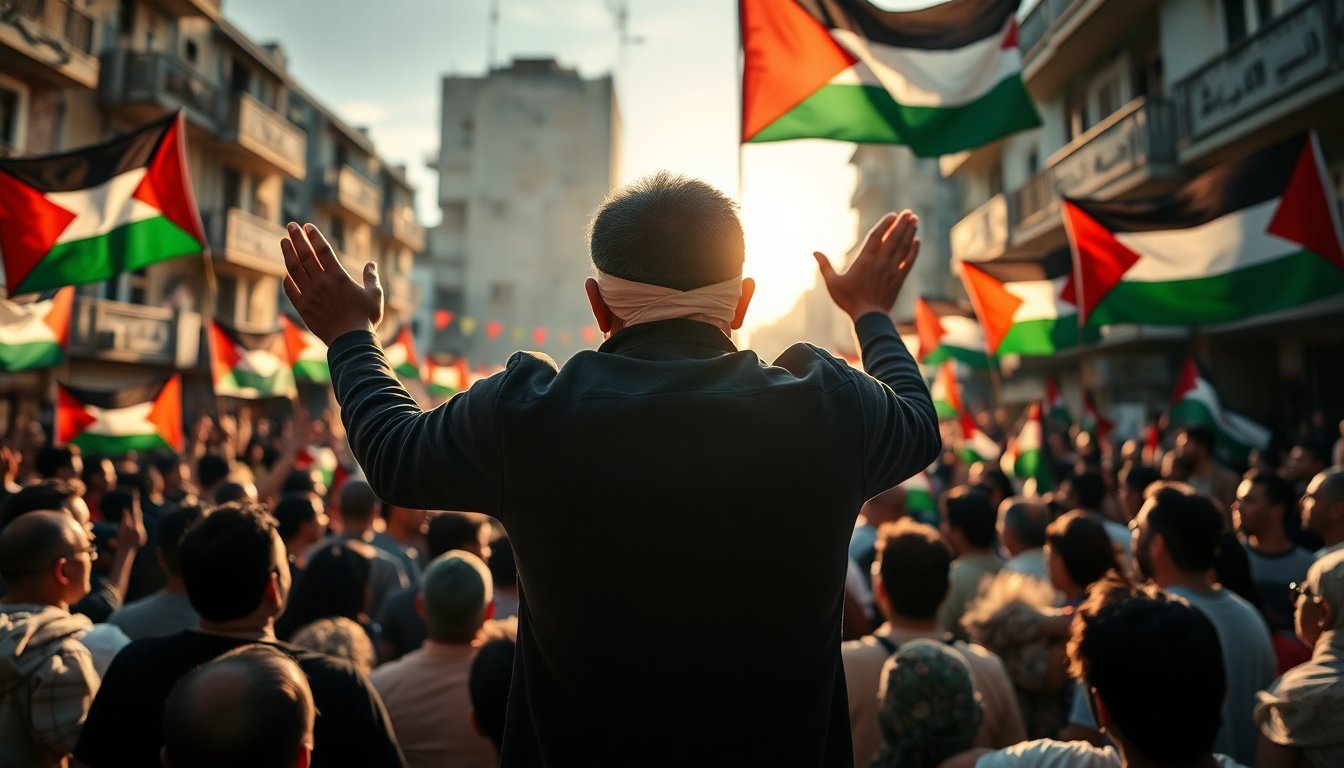Table of Contents
Upon his return to Gaza, Mahmoud Abu Foul stood among a crowd of supporters celebrating the release of detainees. Yet, this moment was bittersweet for the 28-year-old, who could not even see the faces of his loved ones due to his newfound blindness. During his nine months in an Israeli prison, he endured brutal treatment that ultimately robbed him of his vision.
Abu Foul’s story is not just one of personal suffering but also a reflection of the broader plight of many Palestinians affected by the ongoing conflict. He lost his left leg in a 2015 airstrike, but the loss of sight has proven to be an even greater hardship.
Detention and torture experiences
On December 27, 2025, Abu Foul was apprehended by the Israel Defence Forces (IDF) at Kamal Adwan Hospital, where he was receiving medical care for his amputated leg. The army’s raid on the hospital led to the detention of medical personnel, including Dr. Hussam Abu Safiya, a prominent figure advocating for patient care amidst the violence.
Abu Foul was released on October 13 as part of a ceasefire agreement between Israel and Hamas, which saw over 1,700 Palestinian detainees freed. Despite the celebration that surrounded his return, Abu Foul could only express sorrow over his condition: “When I came back, I could smell my country’s air, but the joy was overshadowed by my inability to see anything.”
Mother’s shock and heartbreak
His mother, Umm Ahed Abu Foul, experienced profound shock upon finding her son at Nasser Hospital in Khan Younis after his release. Seeing him blinded was a devastating blow, as she recalled, “It was the shock of my life to see that he had lost his eyesight.” The grief was palpable as she looked at a photograph of her son from happier times, describing him as a “blossoming flower.”
Despite having prepared for his eventual return, the change in her son was unimaginable. “Since that moment, my heart has been filled with tears that just won’t dry,” she lamented.
Brutality of imprisonment
Abu Foul recounted the horrors he faced while incarcerated at Sde Teiman, a military facility notorious for its treatment of Palestinian detainees. He described being tortured and routinely beaten under false accusations of terrorism. “They treat us like criminals, labeling us terrorists without any basis. We are not terrorists!” he asserted.
During his time in detention, Abu Foul faced severe physical abuse and emotional humiliation. He described the barracks as a place where guards “unleash all their torture on you.” He endured systematic beatings and had to endure degrading acts, forced to utter insults about himself and his family.
Health deterioration and neglect
His physical condition deteriorated rapidly; forced to remain still for long periods without support, he developed severe back pain. One incident left him unconscious for two hours after a guard struck him on the head. When he awoke, he realized he had lost his sight. Despite his pleas for medical assistance, he was only given ineffective eye drops, which did little to alleviate his suffering.
The Israeli military has often claimed that they operate under the rule of law regarding detainees, denying allegations of systemic abuse. However, reports from human rights organizations like B’Tselem have highlighted a pattern of mistreatment, asserting that the IDF employs tactics of torture and abuse against Palestinian detainees.
International response and ongoing struggles
The plight of prisoners like Abu Foul has drawn international attention. The United Nations has urged Israeli authorities to end the cycle of torture and ill-treatment of Palestinian detainees, advocating for their right to life and humane conditions. Numerous reports have documented severe abuses, including beatings and inadequate medical care, leading to tragic outcomes for many.
For Abu Foul, the hope lies in seeking medical treatment abroad that may restore his vision. His story serves as a stark reminder of the human cost of conflict and the critical need for greater awareness and action regarding the treatment of prisoners.


